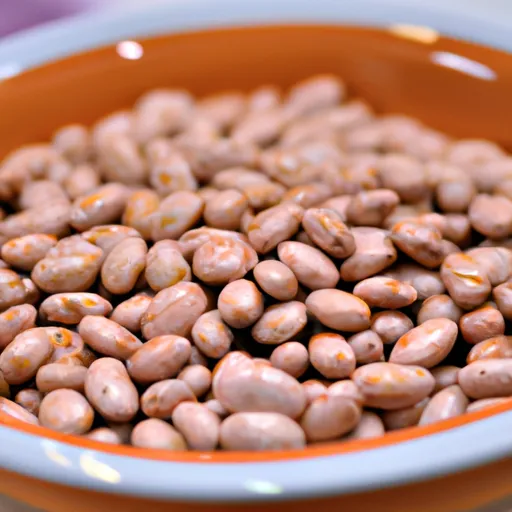How to Incorporate More Plant-Based Proteins Into Your Diet
Are you looking to add more plant-based proteins to your diet? Whether you are a vegetarian, vegan, or simply looking to reduce your meat consumption, incorporating plant-based proteins into your meals is a great way to boost your protein intake while also benefiting the environment. Plant-based proteins are not only rich in essential nutrients but also contain fiber and antioxidants that are beneficial to your overall health.
1. Start with Legumes
Legumes such as beans, lentils, and chickpeas are excellent sources of plant-based proteins. These versatile ingredients can be easily incorporated into soups, salads, stews, and even burgers. Try adding beans to your favorite chili recipe or making a hearty lentil soup for a nutritious meal.
2. Incorporate Nuts and Seeds
Nuts and seeds are not only great sources of protein but also contain healthy fats and essential nutrients. Add a handful of almonds, walnuts, or pumpkin seeds to your oatmeal or yogurt for a nutritious and satisfying breakfast. You can also sprinkle chia seeds or hemp seeds on top of your salads or smoothie bowls for an extra protein boost.
Read also: Protect Your Mental Health During Difficult Times: Tips and Strategies
3. Experiment with Whole Grains
Whole grains such as quinoa, brown rice, and farro are packed with protein and fiber. Replace white rice with quinoa in your stir-fry or use farro as a base for your Buddha bowl. Whole grains are not only filling but also provide essential nutrients that are beneficial to your overall health.
4. Try Plant-Based Meat Alternatives
If you are craving a meaty texture, consider trying plant-based meat alternatives such as tofu, tempeh, or seitan. These products are not only rich in protein but also versatile and can be used in a variety of dishes. Experiment with marinating tofu in your favorite sauce or using tempeh in a stir-fry for a delicious and satisfying meal.
5. Don’t Forget About Vegetables
Read also: Effective Tips for Exercise in Busy Schedule
Vegetables such as broccoli, spinach, and Brussels sprouts are not only rich in vitamins and minerals but also contain a surprising amount of protein. Incorporate more vegetables into your meals by roasting them with olive oil and spices or adding them to your favorite pasta dish. Vegetables are a great way to add more plant-based proteins to your diet while also increasing your intake of essential nutrients.
By incorporating more plant-based proteins into your diet, you can reap the benefits of a nutritious and balanced diet while also reducing your environmental impact. Experiment with different ingredients and recipes to discover new and delicious ways to add plant-based proteins to your meals.
Questions and answers
What are plant-based proteins?
Plant-based proteins are proteins that come from plant sources such as beans, lentils, nuts, seeds, and grains. They are a great alternative to animal proteins for those looking to incorporate more plant-based foods into their diet.
How do plant-based proteins compare to animal proteins in terms of nutrition?
Plant-based proteins can provide all the essential amino acids that our bodies need, just like animal proteins. They are also generally lower in saturated fats and cholesterol, making them a healthier option for many people. However, some plant-based proteins may be lower in certain nutrients such as vitamin B12 and iron, so it’s important to make sure you are getting a variety of plant-based sources in your diet.
What are some common sources of plant-based proteins?
Some common sources of plant-based proteins include beans, lentils, tofu, tempeh, nuts, seeds, quinoa, and whole grains. These foods can be easily incorporated into meals such as salads, stir-fries, and soups to increase your protein intake.
Are plant-based proteins suitable for athletes and active individuals?
Yes, plant-based proteins can be a great option for athletes and active individuals. They can help support muscle recovery and growth, and provide the necessary energy for physical activity. Many plant-based athletes have found success in incorporating plant-based proteins into their diets, including famous athletes like Venus Williams and Novak Djokovic.
How can I ensure I am getting enough protein on a plant-based diet?
It’s important to include a variety of plant-based protein sources in your diet to ensure you are getting all the essential amino acids your body needs. You can also consider supplementing with protein powders or bars if you have higher protein needs. Additionally, focusing on whole foods and incorporating protein-rich foods into each meal can help you meet your protein requirements.

